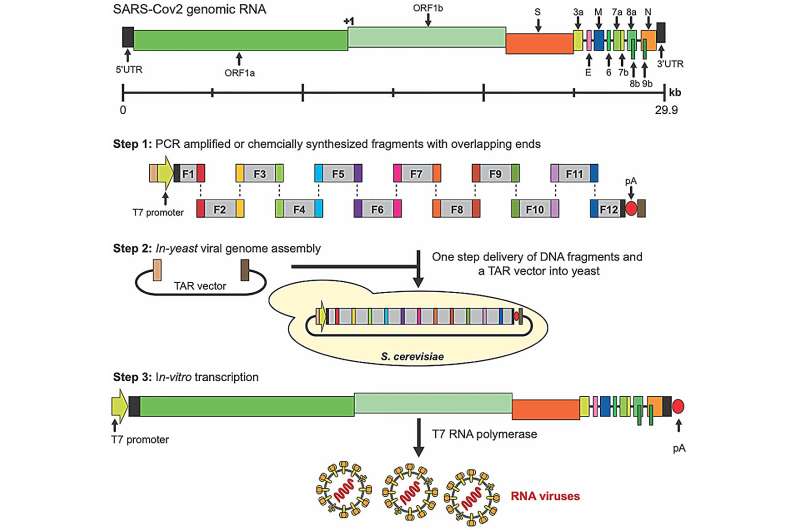This article has been reviewed according to Science X's editorial process and policies. Editors have highlighted the following attributes while ensuring the content's credibility:
fact-checked
peer-reviewed publication
proofread
Transformation-associated recombination (TAR) cloning and its applications

A new review paper titled "Transformation-associated recombination (TAR) cloning and its applications for gene function; genome architecture and evolution; biotechnology and biomedicine" has been published in Oncotarget.
Transformation-associated recombination (TAR) cloning represents a unique tool to selectively and efficiently recover a given chromosomal segment up to several hundred kb in length from complex genomes (such as animals and plants) and simple genomes (such as bacteria and viruses). The technique exploits a high level of homologous recombination in the yeast Sacharomyces cerevisiae.
In this new review, researchers Natalay Kouprina and Vladimir Larionov from the National Cancer Institute's Developmental Therapeutics Branch summarized multiple applications of the pioneering TAR cloning technique, developed previously for complex genomes, for functional, evolutionary, and structural studies, and extended the modified TAR versions to isolate biosynthetic gene clusters (BGCs) from microbes, which are the major source of pharmacological agents and industrial compounds, and to engineer synthetic viruses with novel properties to design a new generation of vaccines.
TAR cloning was adapted as a reliable method for the assembly of synthetic microbe genomes for fundamental research.
"TAR cloning has become a valuable procedure for the selective and efficient isolation and manipulation of large DNA molecules. [...] The ability to isolate individual gene alleles will help to clarify whether a particular allele is associated with predisposition to different diseases, including cancer," the researchers write. "In this review, we also discuss how the TAR cloning in combination with HAC (human artificial chromosome)- and CRISPR-based technologies may contribute to the future."
More information: Natalay Kouprina et al, Transformation-associated recombination (TAR) cloning and its applications for gene function; genome architecture and evolution; biotechnology and biomedicine, Oncotarget (2023). DOI: 10.18632/oncotarget.28546



















